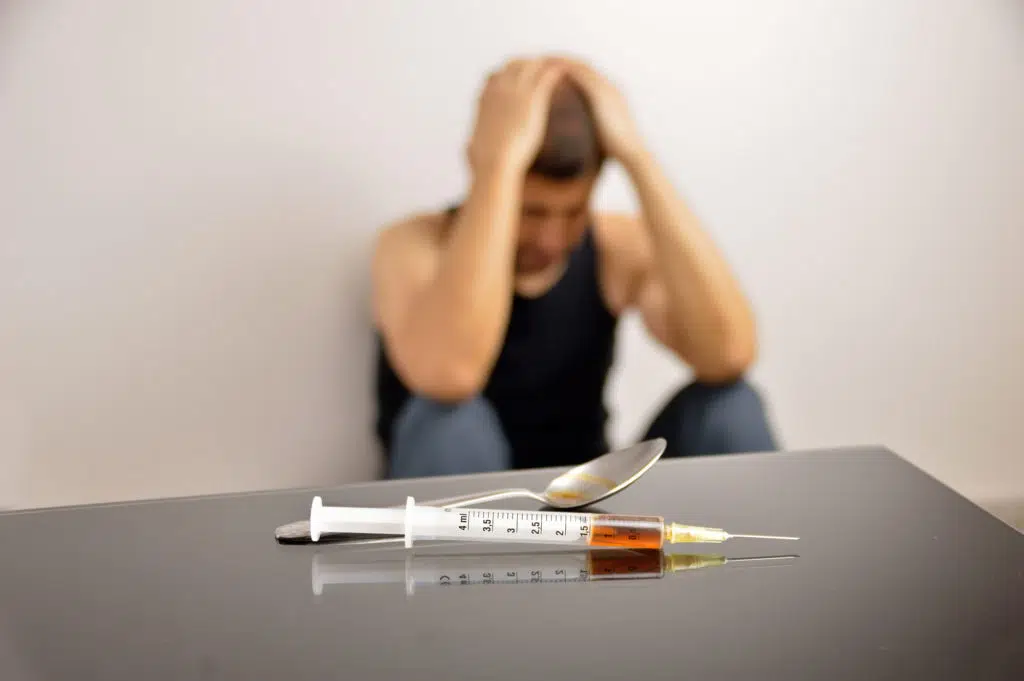Would you be able to tell if someone you’re close to has a heroin problem? While there are many visible signs and symptoms of heroin use, they can be easily concealed. If you’re worried about potential heroin use in a friend or loved one, educating yourself is one of the best things you can do to help.
Heroin is a highly addictive opioid drug made from morphine, a natural substance taken from the seed pod of the various poppy plants grown in Southeast and Southwest Asia, Mexico, and Columbia. It comes in many forms and can be injected, snorted, sniffed or smoked. No matter how it enters the body and brain, it rapidly adheres to opioid receptors throughout the body, particularly those responsible for sensations of pain or pleasure. According to the National Institute on Drug Abuse, nearly 1 million Americans reported using heroin in 2016, a number that has been steadily on the rise since 2007.
Signs and symptoms of heroin use
It’s important to recognize the short-term and long-term signs of heroin use so you can spot them and get your loved one the help they need:
Short-term signs and symptoms of heroin use
People who use heroin often describe a surge of pleasure or euphoria. However, there are several other short-term effects, including:
- Dry mouth
- Warm flushing of the skin
- Nausea or vomiting
- Severe itching
- Runny nose
- Increased tearing
- Discolored tongue
- Disorientation, delirium or changed mental state
- Small pupils
- Semiconsciousness
Long-term signs and symptoms of heroin use
People who use heroin for an extended time may also experience:
- Insomnia or restlessness
- Collapsed veins (when heroin is repeatedly injected)
- Damaged tissue inside the nose (when heroin is repeatedly sniffed or snorted)
- Abscesses (swollen tissue filled with pus)
- Constipation and stomach cramping
- Diarrhea and stomach cramping
- Lung complications (e.g., pneumonia)
- Depression or antisocial personality disorder
- Anxiety
- Erectile dysfunction (men)
- Irregular menstrual cycle (women)
Signs and symptoms of heroin withdrawal
Your friend or loved one may be experiencing symptoms of heroin withdrawal if you notice one or more of the following symptoms:
- Restlessness
- Severe muscle and bone pain
- Sweating
- Sleep problems
- Diarrhea and vomiting
- Cold flashes with goosebumps
- Uncontrollable leg movements
- Severe heroin cravings
Getting the help you need
It’s never easy to help a friend who is struggling with an addiction. It is often difficult to initiate a conversation about their substance abuse, but you can begin to guide them toward a path to recovery with these tips:
- Educate yourself
Learn about the signs and symptoms of heroin use so you can be prepared to help when your friend is ready to accept it. Research how and where they can seek professional help so you can share it with them when the time comes. Choose an accredited treatment center that offers evidence-based treatment programs and therapies in a convenient location. It’s also important to speak to the treatment center about what insurance plans they accept. - Start a conversation
This next step can be extremely challenging because you may need to start the same conversation many different times until your friend is ready to talk about getting help. If you need additional support, talk to one of the skilled interventionists at Miramar Recovery Center. Not only can they help you figure out when and how to approach your loved one, but they can also help facilitate and guide the conversation. - Be supportive
Let your friend know they can count on you to support them throughout each step of their journey to recovery. - Get support for yourself
It can be heartbreaking to watch someone you care about struggle with addiction. Whether you lean on other sober friends or relatives whom you can talk to or join a support group for people with an addict in their lives, it’s important to take care of your mental and emotional health as well.
We will be here when you or your loved one is ready to begin heroin detox and take the next step toward a new, sober life. Call Miramar Recovery Center at (949) 691-5036 to ask us about our rehabilitation treatment programs or to schedule a free consultation with one of our skilled and compassionate clinicians. Depending on the severity of the addiction, we offer flexible outpatient or intensive residential (inpatient) treatment options.




